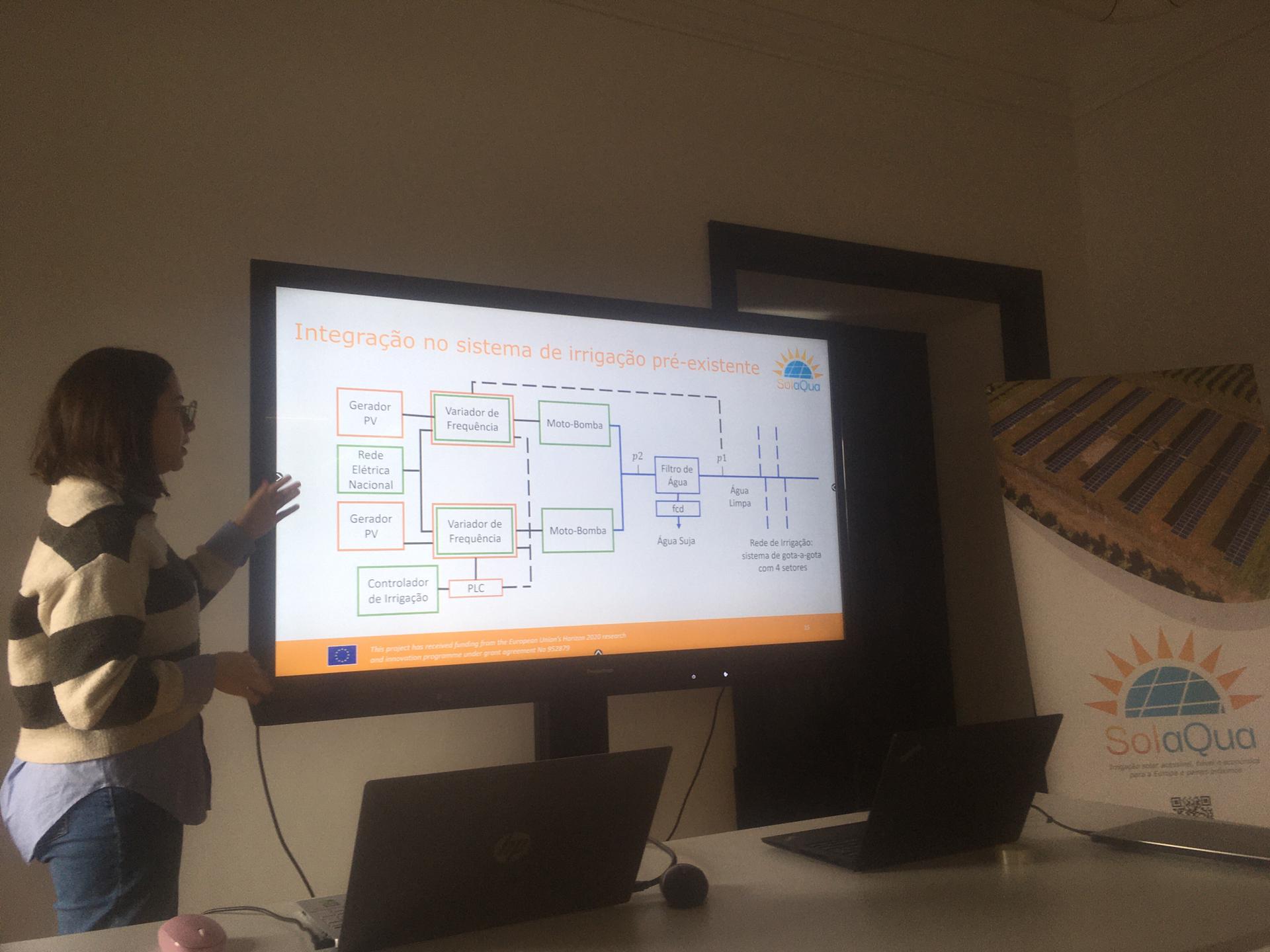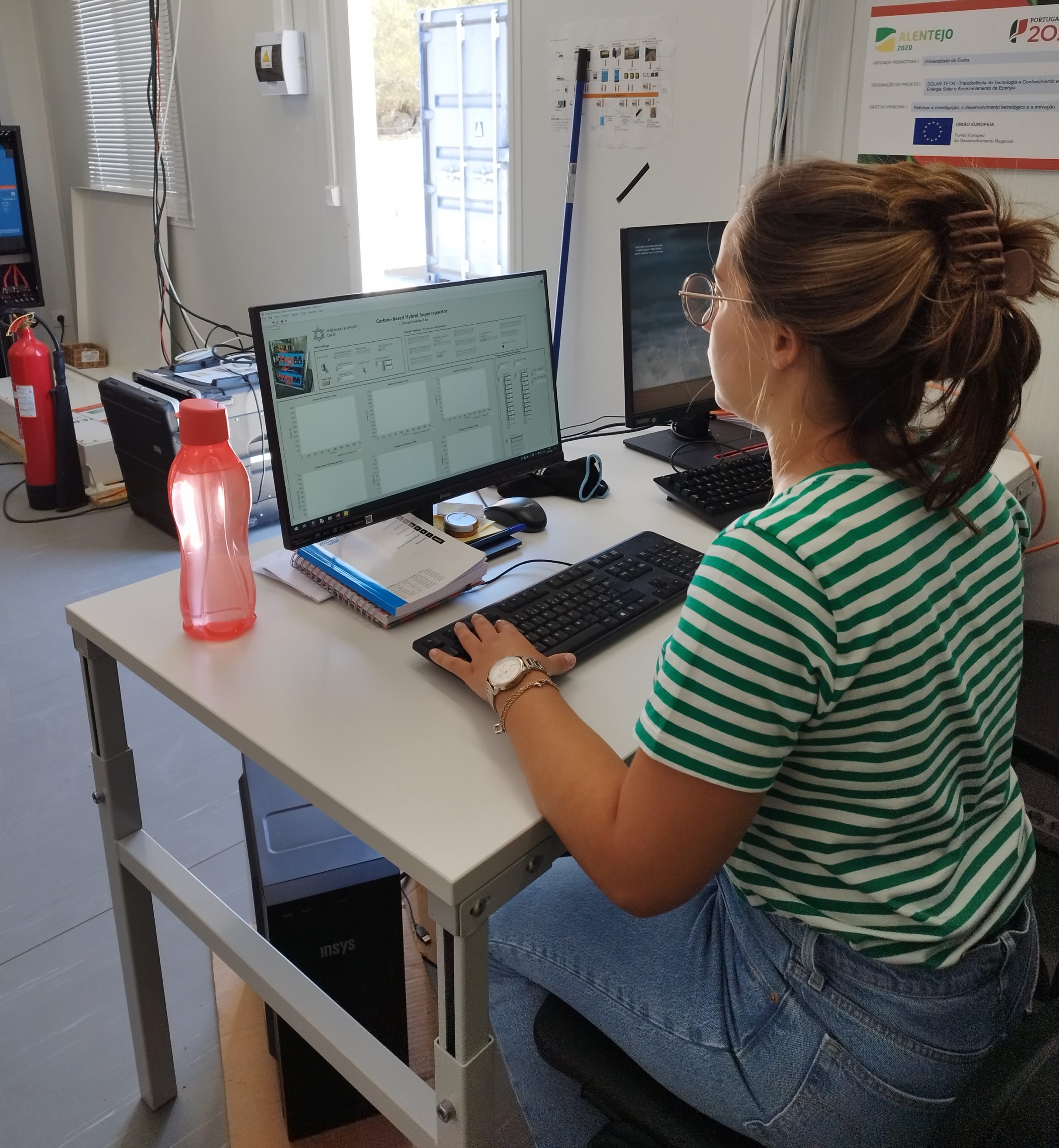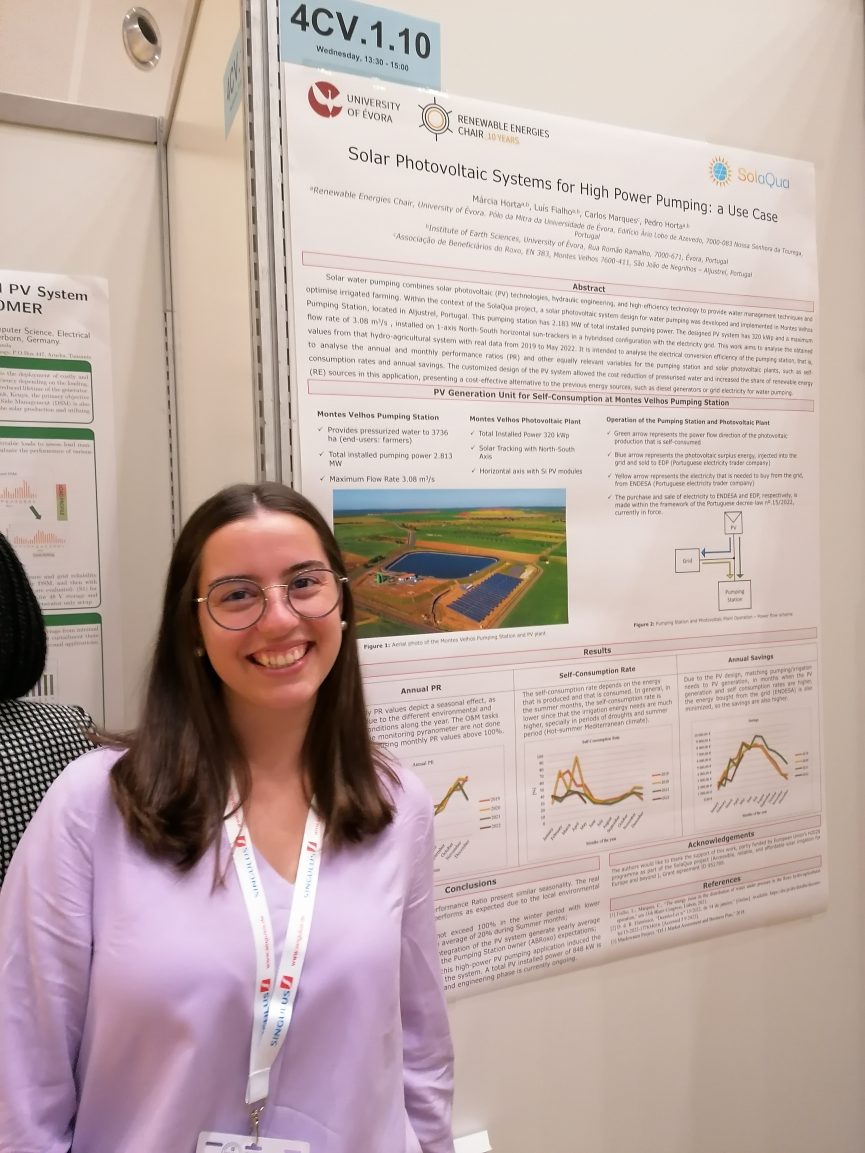Hello, Márcia, welcome to this interview as part of the SolaQua project. First of all, I’d like you to introduce yourself (explain where you were born, where you went to school, what you’re doing at the moment).
My name is Márcia Alexandra Rodrigues Horta and I’m a master’s research fellow at the Chair of Renewable Energies (CER) at the University of Évora and I’m part of the solar photovoltaic energy group at CER.
I was born in Beja, Portugal. I studied in Mértola until I was 18 and came to Évora in 2018 to start my journey at this University. Initially, I took a degree in Renewable Energy Engineering and finished it in 2021. That same year, I took a master’s degree in Solar Energy Engineering and am currently finishing my master’s thesis, investigating the application of a new energy storage technology in the field of high-power photovoltaic solar irrigation.
You are currently a researcher at the Chair of Renewable Energies at the University of Évora. Can you tell us a bit about your experience at the Chair (for example, what you research and the projects you’ve taken part in)?
My first contact with the Chair was during my undergraduate studies, where I carried out my final project. When I finished my degree I was invited by Dr. Luís Fialho to be a research fellow at the Chair and to join this team, where I have remained to this day.
At the moment, as part of the SolaQua project, I am researching the application of a carbon-based hybrid supercapacitor in the area of solar irrigation, something that will be new given the degree of innovation of this combination of technologies in the irrigation sector. As part of this project, I’ve already had the opportunity to visit some of the full-scale demonstrators that have been built thanks to this project. I’ve also had the privilege of passing on knowledge to SMEs and farmers through the cycle of workshops that we developed at the Chair over the course of a few months, and I have to say that it was a great challenge for me, which I managed to overcome successfully.
I’ve also given some support in the area of research into 2nd life lithium-ion batteries, which I think is quite interesting given the current situation, as part of the SolarTech project. Throughout this project I’ve also had the opportunity to make direct contact with suppliers of photovoltaic modules, inverters and participate in the design and assembly of a full-scale PV system, which always ends up enriching us with experience.

There are more and more women in the world of research, but in general there are still fewer women than men in research groups. Can you tell us a bit about your experience? What is the current reality in your Chair?
It’s a fact that we as women are still in the minority, especially in this area of photovoltaic irrigation, which is mainly dominated by men.
At the time I was doing my degree, my class consisted of five girls and a single boy; in the Solar Energy master’s degree, the ratio was already 50/50.
At CER we’re still a few (in the photovoltaic solar energy group we’re already at parity) but I think that over the years this number may increase, especially thanks to these interviews and even thanks to the scientific articles we’ve been developing. I think that with these short interviews we can inspire more young women to take an interest in this area of research.
Finally, what would you say to young women who are finishing secondary school about studying engineering or solar energy?
The message I’d like to pass on is that you should always follow your dreams and that nothing is impossible in the 21st century and that: don’t be afraid to take risks! Today, solar energy is very important for our energy transition because, after all, it really will be our future from now on. The existence of professionals trained in this area is really important these days.



